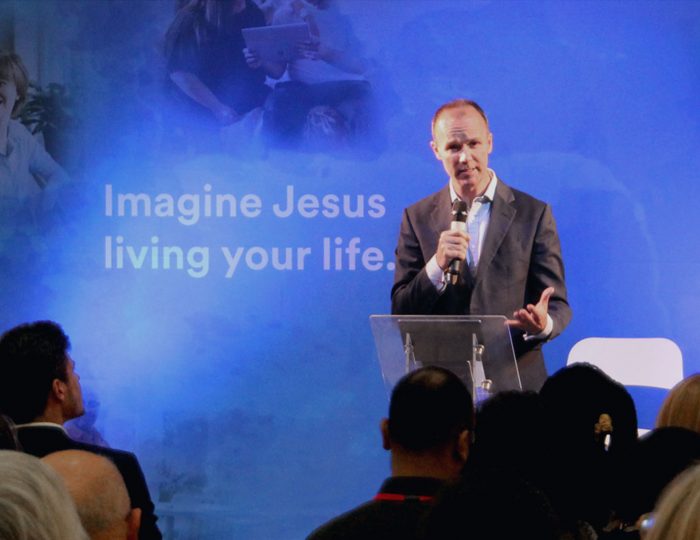The London Institute for Contemporary Christianity was established by John Stott and friends in 1982 to help people relate the gospel to the modern world through ‘double listening’ – both to Scripture and the modern world. At the official opening of LICC, Stott laid out why this was so crucial:
‘Some years ago, I was talking with two brothers, both students, who had been brought up in a conservative Christian home but were now repudiating the faith of their parents. I asked them whether they no longer believed that Christianity was true. “Our problem,” they replied, “is not whether Christianity is true, but whether it is relevant. And frankly we do not see how it can be. For Christianity arose in a primitive Palestinian culture. What has an ancient Palestinian religion to do with us who live in the exciting, kaleidoscopic world of the end of the twentieth century? What has your primitive religion to say to us?”
‘The London Institute is committed to the struggle of rightly understanding and applying the Bible to the world of today. It seems to us of doubtful value to reaffirm (even re-establish) the authority of the Bible if we cannot go on to demonstrate its relevance today. We need to move forward to a new day in which the tension between the ancient faith and the modern world, the Bible and science, revelation and reason, is transcended in a new Christian worldview, when Christian people refuse to confine Jesus Christ within a religious slot, and instead acknowledge him as the Lord of the whole of life, including home and work, art and science, history and politics.’
That vision has remained LICC’s focus throughout the last 40 years. Following an initial nine years under the leadership of Stott, Martyn Eden, and Edward Lucas, philosopher, theologian, and Christian feminist Elaine Storkey was appointed as Executive Director in 1991. Throughout the 80s and 90s, LICC taught hundreds of Christians from the UK and around the world, across all walks of life, how to navigate a vast range of issues and live and make an impact as followers of Christ.
In 1999, former adman Mark Greene became Executive Director and wrote the essay Imagine How We Can Reach the UK, kickstarting a conversation in the UK church on the need to refocus on equipping people to live as disciples of Jesus in their everyday lives and work. Subsequently, the team began working on the Imagine Project, three years of field research working with 16 churches. The results were published in Imagine Church, providing hundreds of churches with new ideas to follow and paving the way for Learning Hubs to come.
In the years that followed our reach steadily grew. With 100,000 copies distributed through Scripture Union, our essay The Great Divide resonated across the church, dismantling the idea that God only cares about ‘sacred’ things like church services and prayer meetings, while ‘secular’ things like work, hobbies, and entertainment are irrelevant. Life on the Frontline was our first small group resource that could be used in thousands of churches, helping their people see that daily life is significant to God.
Transforming Work did the same for the workplace, and our digital prayer journeys took off like a rocket, helping tens of thousands pray with a whole-life lens. Fruitfulness on the Frontline summed up all we’d learned about living out the whole-life gospel, and again reached hundreds of thousands. And from 2018 we published the Gateway Seven Bible studies, helping Christians connect seven different biblical books and genres to their day-to-day lives – and grow in confidence as disciples in a challenging culture.
In 2021, we appointed Theos founder and former Bible Society Deputy Chief Executive Paul Woolley as our new CEO to grow this work further. The following year, we kicked off a new five-year strategy to accelerate the reach and impact of our mission, with an audacious goal to engage a million UK Christians with the vision of whole-life discipleship. We also adopted a strategic focus on 18–35-year-olds, recognising that the emerging generations are crucial to building a whole-life disciplemaking culture that lasts in the UK church.
And the journey continues…

